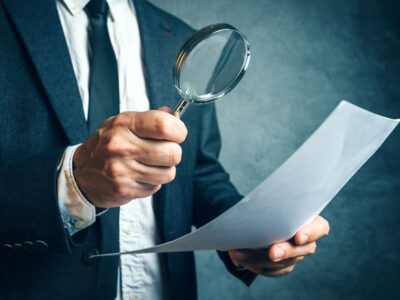
Forensic Audit and Tax Investigation
The key areas of work for Forensic Accountants are:
- Quantification of Damages and Loss of Profits
- Assessing the effect on profitability, cashflow, income or value, that a party claims to have incurred, or may incur, because of either a breach in a contract, personal injury, product liability, breaches of the Trade Practices Act or Fair Trading, etc.
The Forensic Accountant may also need to consider the impact of other circumstances on the claimed loss, and the degree to which the loss was mitigated or could have been mitigated in order to determine the actual loss incurred.
Valuations
Determining the value of shares, businesses, partnerships, intangibles, etc in dispute, lost or destroyed. The Forensic Accountant must review information as both a financial analyst and as an investigating accountant, making appropriate adjustments, where necessary, and applying a generally accepted, or arguable, methodology to determine the value.
Professional Negligence
Reviewing transactions and the actions, or inaction, of various professionals to determine whether the parties were negligent and, if so, to what extent.
When a review involves an accounting professional, a keen knowledge of the applicable accounting standards and the prevailing law is required. Therefore, the Forensic Accountant must have the ability to identify the impact and timing of changes in law and procedures.
Fraud – investigating frauds and establishing procedures to prevent or detect fraud. Forensic Accountants are frequently called upon to investigate frauds, identify the appropriate documentary evidence, quantify the loss and to assist in the prosecution of those involved.
Family Law Matters – assessing the existence, value and ownership of the financial resources available to parties in matrimonial dispute. This type of work requires excellent communication skills when dealing with related party small family businesses where the personal emotions of the parties involved as frequently the financial information being considered frequently contains a mixture of business and personal transactions with tax driven results.
Forensic Accountants need to have an interest in and the aptitude to develop accounting, auditing, financial and investigative skills to recognise, document and analyse information frequently from hostile or opposing parties-that is required to form and support an opinion.
The Forensic Accountant must have the confidence and ability to respond immediately to questions raised in court. Further, and potentially even more important than knowing the answers, the Forensic Accountant must be able to communicate often extremely technical and complex financial information in a manner that will understood by the court.
Tax Investigation
HM Revenue and Customs no longer need a reason for opening an enquiry into your business or personal affairs? This means that potentially everyone is at risk of a tax investigation
The costs associated with an investigation can be devastating, and even if you are successful in defending yourself against HM Revenue and Customs (HMRC), you cannot recover your costs from the tax authority. But with this service, we feel that you will have peace of mind should you be investigated.
